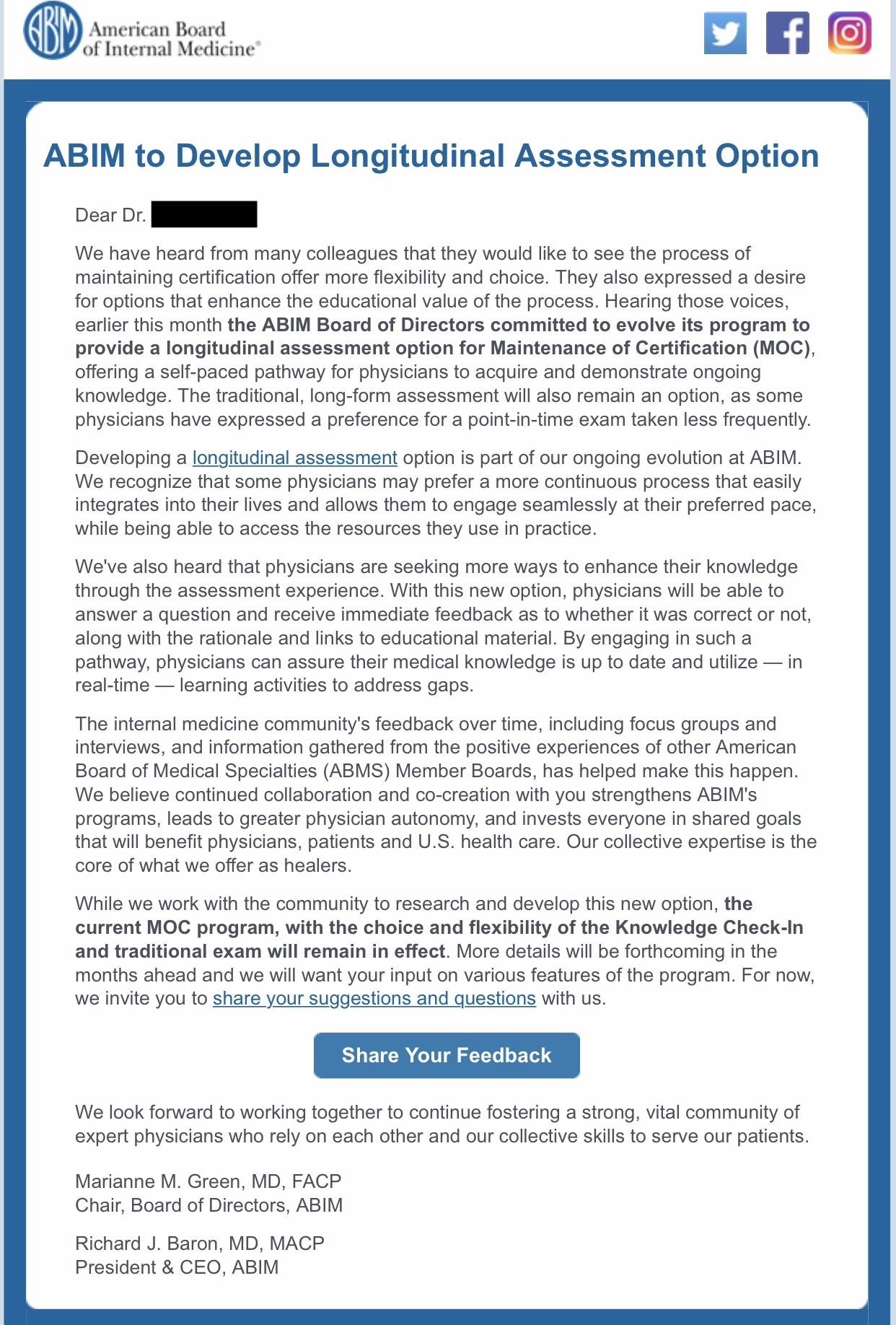Can anyone tell me if this is legal? I have to check the American Board of Emergency Medicine's website for info regarding MOC and the Concert Exam. In order to have access, I have to agree to this statement. This leaves me no choice, yet MOC is mandatory. It feels like blackmail. And would this be enforceable in a class action lawsuit?I would encourage all Emergency Physicians to join our fight against the American Board of Internal Medicine that has a similar adhesion contract embedded on its website behind its firewall, too. The RICO portion of the lawsuit addresses this collusion between the ABMS member boards to further their monopoly on physicians' initial board certification for their financial, political, and promotional purposes.
RELEASE OF ABEM
I agree to indemnify, and waive any right to sue, ABEM and its directors, examiners, committee members, officers, employees, and agents; to hold them harmless from any claims or damages including, but not limited to, attorneys’ fees and costs incurred in connection with my participation in activities to stay ABEM-certified, including but not limited to any action they, or any of them take or fail to take in connection with my participation in certification activities; my eligibility for examination; the gathering, furnishing and use of information about my training and practice; the grading or conduct of my tests or examination(s); and/or the failure of ABEM to issue me a certificate.
CONTROVERSY OR CLAIM RESOLUTION
I agree that if, despite the Release of ABEM in the paragraph above, I sue ABEM, I will bring that suit in Chicago, Illinois and that I will pay all of ABEM’s costs and attorneys’ fees in connection with such suit.
Contributions can be made here.
We'll see what the courts decide on the legality of this practice of coercing physicians using unavoidable adhesion contracts.
-Wes



